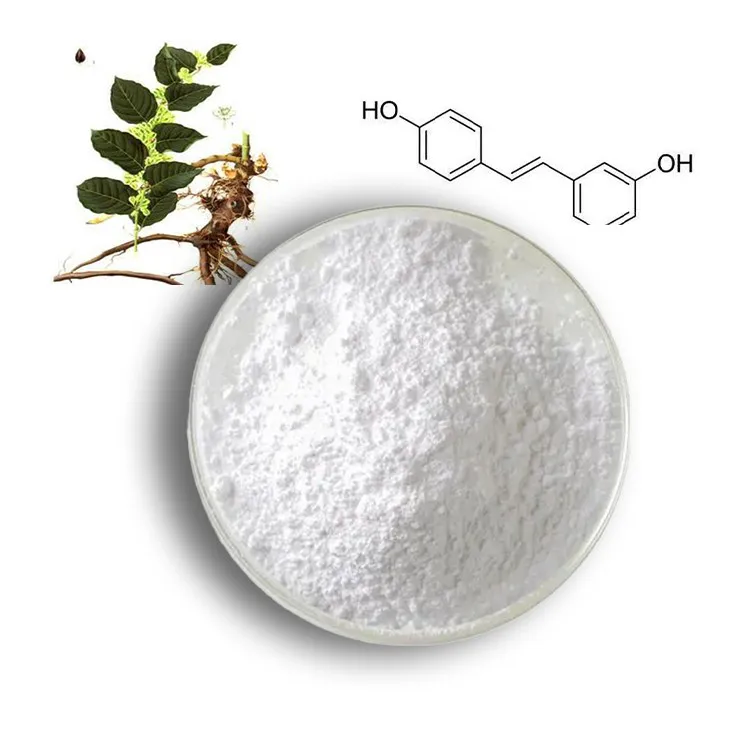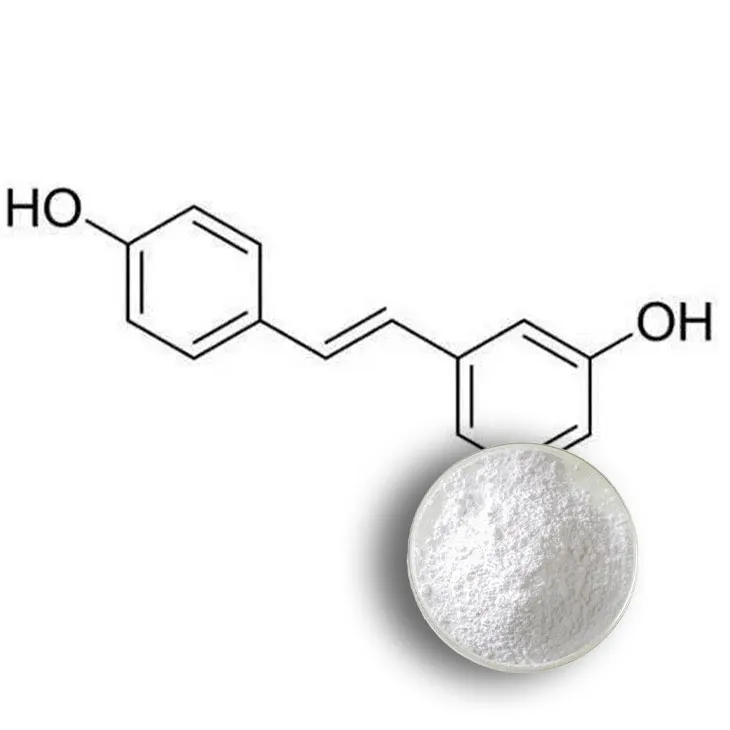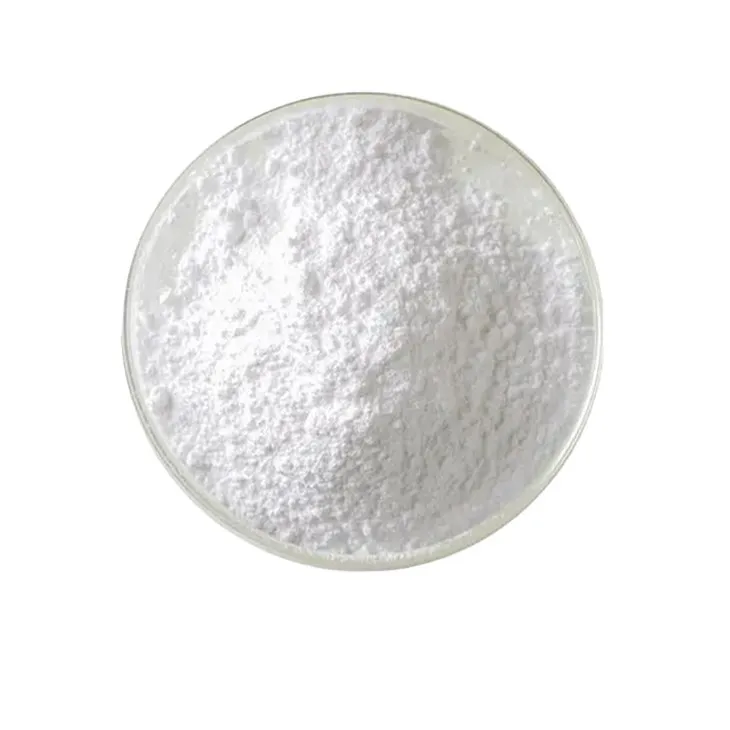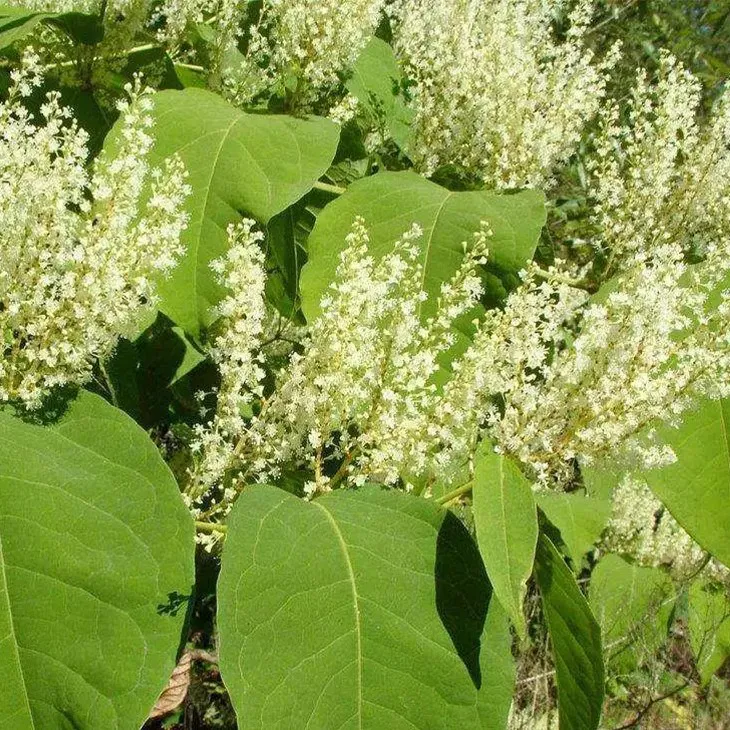- 0086-571-85302990
- sales@greenskybio.com
Have you heard of resveratrol extract? 5 Unexpected Health Benefits.
2024-11-13

Introduction
Resveratrol extract has been gaining increasing attention in the field of health and wellness in recent years. This natural compound, found in various plants such as grapes, berries, and peanuts, has shown remarkable potential in promoting good health. While many people may have heard of resveratrol in a general sense, the specific health benefits it offers are often not fully understood. In this article, we will explore five unexpected health benefits of Resveratrol extract.

1. Powerful Antioxidant Activity
Antioxidants are essential for our health as they help to combat oxidative stress. Oxidative stress occurs when there is an imbalance between the production of free radicals and the body's ability to neutralize them. Resveratrol is a potent antioxidant that can scavenge free radicals in the body.
Free radicals are highly reactive molecules that can damage cells, proteins, and DNA. They are produced as a by - product of normal metabolic processes, but can also be generated by external factors such as pollution, smoking, and radiation. By neutralizing free radicals, resveratrol can help to protect cells from damage and reduce the risk of various diseases.
Studies have shown that resveratrol can increase the activity of antioxidant enzymes in the body, such as superoxide dismutase (SOD) and catalase. These enzymes play a crucial role in the body's antioxidant defense system. For example, SOD converts superoxide radicals into hydrogen peroxide, which is then further broken down by catalase into water and oxygen.
Resveratrol's antioxidant properties may also have benefits for the skin. It can help to protect the skin from damage caused by ultraviolet (UV) radiation, which is a major cause of skin aging and skin cancer. By reducing oxidative stress in the skin, resveratrol may help to maintain skin health and appearance.

2. Anti - Inflammatory Effects
Inflammation is a natural response of the body to injury or infection, but chronic inflammation can be harmful and is associated with many diseases, including heart disease, diabetes, and cancer. Resveratrol has been shown to have anti - inflammatory properties.
It can inhibit the production of inflammatory cytokines, which are small proteins that play a key role in the inflammatory response. For example, resveratrol can reduce the production of interleukin - 6 (IL - 6) and tumor necrosis factor - alpha (TNF - α), two important inflammatory cytokines.
Resveratrol can also modulate the activity of immune cells, such as macrophages. Macrophages are a type of white blood cell that plays an important role in the immune response and inflammation. By regulating the activity of macrophages, resveratrol can help to control the inflammatory response.
In addition, resveratrol may have benefits for inflammatory conditions such as arthritis. It can reduce joint pain and inflammation in animal models of arthritis, and may also have potential for treating human arthritis.

3. Potential Anti - Aging Effects
The idea of anti - aging is appealing to many people, and resveratrol may offer some potential in this area. One of the ways resveratrol may have anti - aging effects is through its influence on sirtuins.
Sirtuins are a family of proteins that play a role in regulating cellular metabolism, stress response, and aging. Resveratrol has been shown to activate sirtuins, particularly SIRT1. Activation of SIRT1 can lead to various beneficial effects, such as improved mitochondrial function.
Mitochondria are the powerhouses of the cells, responsible for generating energy. As we age, mitochondrial function declines, which can lead to a decrease in energy production and an increase in oxidative stress. By improving mitochondrial function, resveratrol may help to slow down the aging process.
Resveratrol may also have effects on telomeres. Telomeres are the protective caps at the ends of chromosomes. As cells divide, telomeres shorten, and when they become too short, cells can no longer divide and may die. Some studies suggest that resveratrol can help to protect telomeres from shortening, which could potentially contribute to anti - aging.
Furthermore, resveratrol's antioxidant and anti - inflammatory properties may also play a role in its potential anti - aging effects. By reducing oxidative stress and inflammation, resveratrol can help to maintain the health of cells and tissues, which is important for healthy aging.

4. Heart Health Benefits
Maintaining good heart health is crucial for overall well - being and resveratrol may offer several benefits in this regard.
One of the ways resveratrol can benefit heart health is by improving blood lipid levels. It can reduce levels of low - density lipoprotein (LDL) cholesterol, also known as "bad" cholesterol, and increase levels of high - density lipoprotein (HDL) cholesterol, or "good" cholesterol. This can help to reduce the risk of atherosclerosis, a condition in which plaque builds up in the arteries.
Resveratrol may also have beneficial effects on blood pressure. It can relax blood vessels, which helps to lower blood pressure. High blood pressure is a major risk factor for heart disease, stroke, and other cardiovascular problems.
Another aspect of heart health that resveratrol may influence is platelet aggregation. Platelets are small cell fragments in the blood that play a role in blood clotting. Excessive platelet aggregation can lead to the formation of blood clots, which can block arteries and cause heart attacks or strokes. Resveratrol can inhibit platelet aggregation, reducing the risk of clot - related cardiovascular events.
Moreover, resveratrol's antioxidant and anti - inflammatory properties may also contribute to its heart - healthy effects. By reducing oxidative stress and inflammation in the blood vessels and heart tissue, resveratrol can help to maintain the health of the cardiovascular system.
5. Potential Benefits for Brain Health
The brain is a complex organ that requires proper care and nourishment and resveratrol may have some unexpected benefits for brain health.
Resveratrol has been shown to have neuroprotective properties. It can protect neurons from damage caused by oxidative stress, inflammation, and other factors. For example, in animal models of neurodegenerative diseases such as Alzheimer's and Parkinson's, resveratrol has been shown to reduce neuronal damage and improve cognitive function.
One of the ways resveratrol may protect the brain is through its effects on blood - brain barrier integrity. The blood - brain barrier is a highly selective barrier that separates the brain from the bloodstream. It allows only certain substances to pass through, protecting the brain from harmful substances in the blood. Resveratrol can help to maintain the integrity of the blood - brain barrier, preventing the entry of toxins and pathogens into the brain.
Resveratrol may also have effects on synaptic plasticity. Synaptic plasticity is the ability of synapses, the connections between neurons, to change and adapt. It is important for learning and memory. Resveratrol can enhance synaptic plasticity, which may improve cognitive function.
Furthermore, resveratrol's antioxidant and anti - inflammatory properties may also play a role in its potential benefits for brain health. By reducing oxidative stress and inflammation in the brain, resveratrol can help to maintain the health of neurons and neural circuits.
Conclusion
Resveratrol extract offers a range of unexpected health benefits. From its powerful antioxidant activity to its potential anti - aging, anti - inflammatory, heart - healthy, and brain - healthy effects, this natural compound shows great promise in promoting overall well - being. However, more research is needed to fully understand the mechanisms of action and the optimal dosage of resveratrol for different health conditions. As with any supplement, it is important to consult a healthcare professional before starting to take resveratrol extract.
FAQ:
What is resveratrol extract?
Resveratrol extract is a compound that is typically derived from certain plants, such as grapes, berries, and peanuts. It has gained significant attention in the field of health and wellness due to its potential beneficial properties.
What are the antioxidant properties of resveratrol extract?
Resveratrol extract is a powerful antioxidant. It can neutralize free radicals in the body. Free radicals are unstable molecules that can cause damage to cells, DNA, and proteins. By scavenging these free radicals, resveratrol helps protect the body from oxidative stress, which is associated with various diseases and aging.
How does resveratrol extract potentially have anti - aging effects?
One of the ways resveratrol may have anti - aging effects is through its antioxidant activity. It can protect cells from damage, which may slow down the aging process. Additionally, it may also influence certain cellular processes and genes related to aging, such as those involved in cell longevity and senescence.
Can resveratrol extract help with heart health?
There is evidence to suggest that resveratrol extract may be beneficial for heart health. It may help reduce inflammation in the blood vessels, improve blood lipid profiles by potentially reducing LDL (bad) cholesterol and increasing HDL (good) cholesterol, and also has properties that may protect the heart muscle from damage.
Is resveratrol extract safe for consumption?
In general, when consumed in appropriate amounts, resveratrol extract is considered safe for most people. However, high - dose supplements may cause some side effects such as digestive issues in some individuals. It is always advisable to consult a healthcare provider before starting any new supplement, especially if you have underlying health conditions or are taking medications.
Related literature
- Resveratrol: A Review of Its Anti - inflammatory, Anti - aging, and Anti - cancer Properties"
- "The Role of Resveratrol in Cardiovascular Health: A Comprehensive Review"
- "Resveratrol and Oxidative Stress: Mechanisms of Action and Health Implications"
- ▶ Hesperidin
- ▶ citrus bioflavonoids
- ▶ plant extract
- ▶ lycopene
- ▶ Diosmin
- ▶ Grape seed extract
- ▶ Sea buckthorn Juice Powder
- ▶ Beetroot powder
- ▶ Hops Extract
- ▶ Artichoke Extract
- ▶ Reishi mushroom extract
- ▶ Astaxanthin
- ▶ Green Tea Extract
- ▶ Curcumin Extract
- ▶ Horse Chestnut Extract
- ▶ Other Problems
- ▶ Boswellia Serrata Extract
- ▶ Resveratrol Extract
- ▶ Marigold Extract
- ▶ Grape Leaf Extract
- ▶ blog3
- ▶ blog4
- ▶ blog5
-
Organic Tongkat Ali extract powder factory.
2024-11-13
-
How to make powder with ashwagandha extract.
2024-11-13
-
Rosehip extract manufacturers from China.
2024-11-13
-
The best cat's claw extract in nature.
2024-11-13
-
Chinese Dandelion Leaf Extract Suppliers.
2024-11-13
-
Gynostemma pentaphyllum extract
2024-11-13
-
Motherwort Extract
2024-11-13
-
Beta Carotene
2024-11-13
-
Epimedium extract powder
2024-11-13
-
Uridine-5'-monophosphate Disodium salt
2024-11-13
-
Andrographis Paniculata Extract Powder
2024-11-13
-
Cactus Extract
2024-11-13
-
Honeysuckle Pollen
2024-11-13
-
Fenugreek Extract Powder
2024-11-13
-
Black Pepper Extract
2024-11-13





















